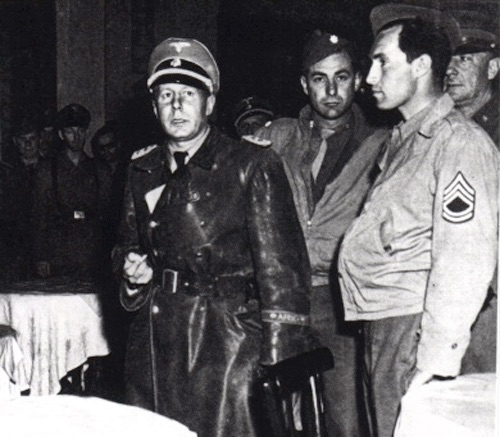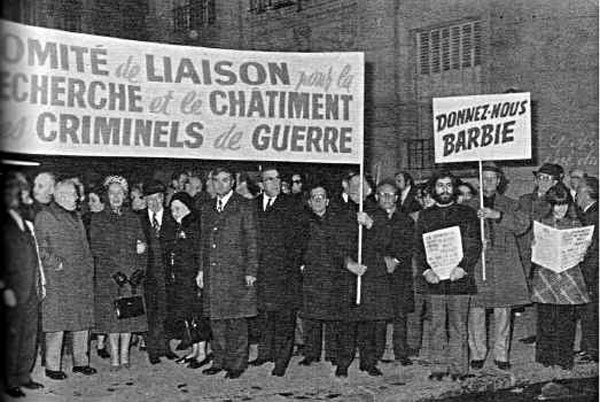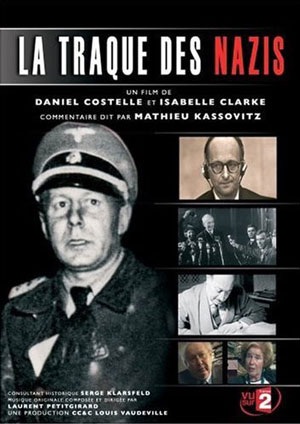La Traque des Nazis
-
Réalisé par Isabelle Clarke, Daniel Costelle • Écrit par Isabelle Clarke, Daniel Costelle
-
France • 2006 • 86 minutes • DV Cam • Couleur et Noir & Blanc
- Réalisation :
Isabelle Clarke, Daniel Costelle - Écriture :
Isabelle Clarke, Daniel Costelle - Voix off :
Mathieu Kassovitz - Musique originale :
Laurent Petitgirard
- Production (structure) :
CC&C - Mediawan - Diffuseur :
TSR - Télévision Suisse Romande, France 2, RTBF - Radio Télévision Belge Francophone - Ayant droit :
CC&C - Mediawan
- N° ISAN :
ISAN 0000-0001-AC57-0000-P-0000-0000-0
Résumé
Ce film est un hommage aux hommes et aux femmes qui, comme Simon Wiesenthal, Serge et Beate Klarsfeld, ont consacré leur vie à la traque d'anciens nazis. Composé de documents d’archives, il s’ouvre sur des images de civils allemands obligés par les Alliés d’enterrer les morts de l’un des derniers massacres de déportés, en mai 1945. Simon Wiesenthal a traqué Eichmann, l’organisateur de la Solution finale, jusqu'à son arrestation en Amérique du Sud.
Les Klarsfeld retrouveront Hagen, Lischka, Heinrichson, responsables de la Gestapo à Paris ainsi que Barbie, le chef de la Gestapo de Lyon. Beate Klarsfeld giflera en public le chancelier allemand Kiesinger, ancien haut fonctionnaire de la propagande nazie. Enfin l’ex-ministre français Maurice Papon sera jugé pour sa participation à la déportation.
Comme le dit Mathieu Kassovitz qui, touché par le film, a voulu prêter sa voix au film : "On ne pourra plus dire maintenant que cela n’a pas existé".
A homage to the men and women who, like Simon Wiesenthal, Serge and Beate Klarsfeld, have devoted their lives to hunting down former Nazis. Using archive footage, it starts with images showing German civilians being forced by the Allies to bury the victims of one of the last massacres of deportees, in May 1945. Simon Wiesenthal is generally known for tracking down Adolf Eichmann, the engineer of the Final Solution, who was arrested in South America.
The Klarsfeld found Hagen, Lischka, Heinrichson, Gestapo chiefs in Paris as well as Barbie, the head of the Gestapo in Lyon. Beate Klarsfeld publicly slapped German Chancellor Kurt Kiesinger, a former Nazi Part member and top civil servant. And the former French minister Maurice Papon would be prosecuted for his role in the deportations.
In the words of Mathieu Kassovitz who, moved by the film, agreed to narrate it: "You can’t say anymore that it never happened."




